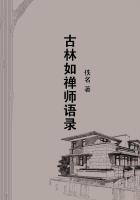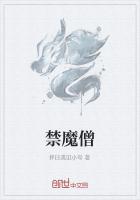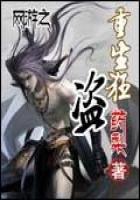In the naked form, and in the disposition of the drapery, the difference between one artist and another is principally seen.But if he is compelled to the modern dress, the naked form is entirely hid, and the drapery is already disposed by the skill of the tailor.Were a Phidias to obey such absurd commands, he would please no more than an ordinary sculptor; since, in the inferior parts of every art, the learned and the ignorant are nearly upon a level.
These were probably among the reasons that induced the sculptor of that wonderful figure of Laocoon to exhibit him naked, notwithstanding he was surprised in the act of sacrificing to Apollo, and consequently ought to be shown in his sacerdotal habits, if those greater reasons had not preponderated.Art is not yet in so high estimation with us as to obtain so great a sacrifice as the ancients made, especially the Grecians, who suffered themselves to be represented naked, whether they were generals, lawgivers, or kings.
Under this head of balancing and choosing the greater reason, or of two evils taking the least, we may consider the conduct of Rubens in the Luxembourg gallery, of mixing allegorical figures with representations of real personages, which, though acknowledged to be a fault, yet, if the artist considered himself as engaged to furnish this gallery with a rich and splendid ornament, this could not be done, at least in an equal degree, without peopling the air and water with these allegorical figures: he therefore accomplished that he purposes.In this case all lesser considerations, which tend to obstruct the great end of the work, must yield and give way.
If it is objected that Rubens judged ill at first in thinking it necessary to make his work so very ornamental, this brings the question upon new ground.It was his peculiar style; he could paint in no other; and he was selected for that work, probably, because it was his style.Nobody will dispute but some of the best of the Roman or Bolognian schools would have produced a more learned and more noble work.
This leads us to another important province of taste, of weighing the value of the different classes of the art, and of estimating themaccordingly.
All arts have means within them of applying themselves with success both to the intellectual and sensitive part of our natures.It can be no dispute, supposing both these means put in practice with equal abilities, to which we ought to give the preference: to him who represents the heroic arts and more dignified passions of man, or to him who, by the help of meretricious ornaments, however elegant and graceful, captivates the sensuality, as it may be called, of our taste.Thus the Roman and Bolognian schools are reasonably preferred to the Venetian, Flemish, or Dutch schools, as they address themselves to our best and noblest faculties.
Well-turned periods in eloquence, or harmony of numbers in poetry, which are in those arts what colouring is in painting, however highly we may esteem them, can never be considered as of equal importance with the art of unfolding truths that are useful to mankind, and which make us better or wiser.Nor can those works which remind us of the poverty and meanness of our nature, be considered as of equal rank with what excites ideas of grandeur, or raises and dignifies humanity; or, in the words of a late poet, which makes the beholder learn to venerate himself as man.
It is reason and good sense therefore which ranks and estimates every art, and every part of that art, according to its importance, from the painter of animated down to inanimated nature.We will not allow a man, who shall prefer the inferior style, to say it is his taste; taste here has nothing, or at least ought to have nothing to do with the question.He wants not taste, but sense, and soundness of judgment.
Indeed, perfection in an inferior style may be reasonably preferred to mediocrity in the highest walks of art.A landscape of Claude Lorraine may be preferred to a history of Luca Jordano; but hence appears the necessity of the connoisseur's knowing in what consists the excellence of each class, in order to judge how near it approaches to perfection.
Even in works of the same kind, as in history painting, which is composed of various parts, excellence of an inferior species, carried to a very high degree, will make a work very valuable, and in some measure compensate for the absence of the higher kind of merits.It is the duty ofthe connoisseur to know and esteem, as much as it may deserve, every part of painting; he will not then think even Bassano unworthy of his notice, who, though totally devoid of expression, sense, grace, or elegance, may be esteemed on account of his admirable taste of colours, which, in his best works, are little inferior to those of Titian.
Since I have mentioned Bassano, we must do him likewise the justice to acknowledge that, though he did not aspire to the dignity of expressing the characters and passions of men, yet, with respect to the facility and truth in his manner of touching animals of all kinds, and giving them what painters call their character, few have ever excelled him.
To Bassano we may add Paul Veronese and Tintoret, for their entire inattention to what is justly esteemed the most essential part of our art, the expression of the passions.Notwithstanding these glaring deficiencies, we justly esteem their works; but it must be remembered that they do not please from those defects, but from their great excellences of another kind, and in spite of such transgressions.These excellences, too, as far as they go, are founded in the truth of general nature.They tell the truth, though not the whole truth.
By these considerations, which can never be too frequently impressed, may be obviated two errors which I observed to have been, formerly at least, the most prevalent, and to be most injurious to artists: that of thinking taste and genius to have nothing to do with reason, and that of taking particular living objects for nature.

